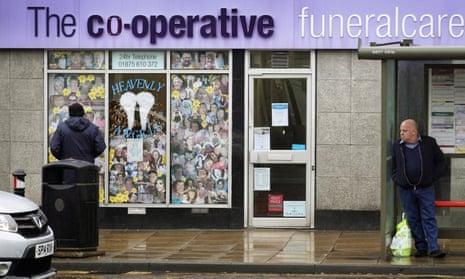Those mourning loved ones lost in the coronavirus pandemic are increasingly turning to online forums and virtual remembrance websites for support with grief, experts say.
Meanwhile, the national bereavement charity Sue Ryder and a coalition of cross-party MPs, charities and healthcare professionals are calling on the government to introduce a minimum of two weeks’ statutory paid bereavement leave for UK employees who have lost someone.
The number of deaths due to Covid-19 in the UK has exceeded 100,000, and in the absence of physical contact, people are seeking solace through social media, phone helplines and other platforms.
But experts say this will not help everyone, as some are unable to access online support while others will still struggle to overcome grief because the pandemic has put their life on hold.
More than 6,400 tributes have been added to an online book of remembrance for victims of Covid-19 since the site was launched in May by St Paul’s Cathedral in London. Friends and carers of those who have died can submit, free of charge, the name, photograph and a short message in honour of their loved one. There has been an increase in people leaving memorials during this second wave, compared with in the summer and autumn.
Others have set up support groups, including a series of free online services called CovidSpeakEasy, to allow people whose partners have died from the virus to tell their stories and share their experiences.
Jon Van Niekerk, from the general adult faculty at the Royal College of Psychiatrists, said it was aware of more people seeking help through friends via Zoom, as video conferencing had become more normal. “Normally when we grieve we are surrounded by friends and family and people are now getting that from reaching out in a virtual way, getting a virtual hug,” he said. Van Niekerk said that talking was vital, as grieving could be an “extremely lonely” process without it.
Jon Levett, chief executive of the National Association of Funeral Directors, noted the ascent of online portals to help, with grief forums increasingly appearing, as well as funeral homes offering video links so people could say goodbye virtually. He said: “There were always so-called death cafes where groups of people who had suffered a bereavement would get together and sit and so on. That is not allowed under current restrictions but increasingly those platforms [support groups] are now moving online so those who suffered a bereavement are going online and talking.”
Angharad Burden, who is a bereavement support coordinator at Marie Curie – an end-of-life care charity in the UK – said there was a 25% increase in the number of calls to the national support line between March to December last year compared with the year before. One million people have accessed online information via their website since March.
“There are a number of unique challenges with grief at the moment,” Burden said. “Lockdowns and restrictions mean lots of people are not able to lean on their usual support networks or reach those in the local community as they would have done in more normal times.”
Burden said people also had a sense that their individual grief was “insignificant” amid a pandemic with thousands of deaths. “We try to make them feel truly listened to and heard and validated … It can be overwhelming with all the statistics,” she said.
Prof Lorraine Sherr, a professor of clinical and health psychology at University College London, said community and relationships played an important role in grieving. She added that losing someone unexpectedly could be “harsher”.
Sherr worried about people “putting grieving on ice”. She added that, as well as deaths, people were experiencing other losses at the moment, giving the example of a mother who might have her partner absent at the birth of their child due to Covid restrictions.
“Normally when you have grief you integrate it into your new life but Covid has jarred that process as we don’t have our normal life to go back to. We don’t visit our children and go out somewhere nice and listen to music. All those pathways to reconnect with life are closed so it must make it much harder.”
Van Niekerk said clinicians would welcome more government support for grief counselling, as well as more information to make people aware of what is already out there. “In the longer term, for those with complicated or prolonged grief, there will need to be more specific interventions and a scaling up in response to that,” he said.
